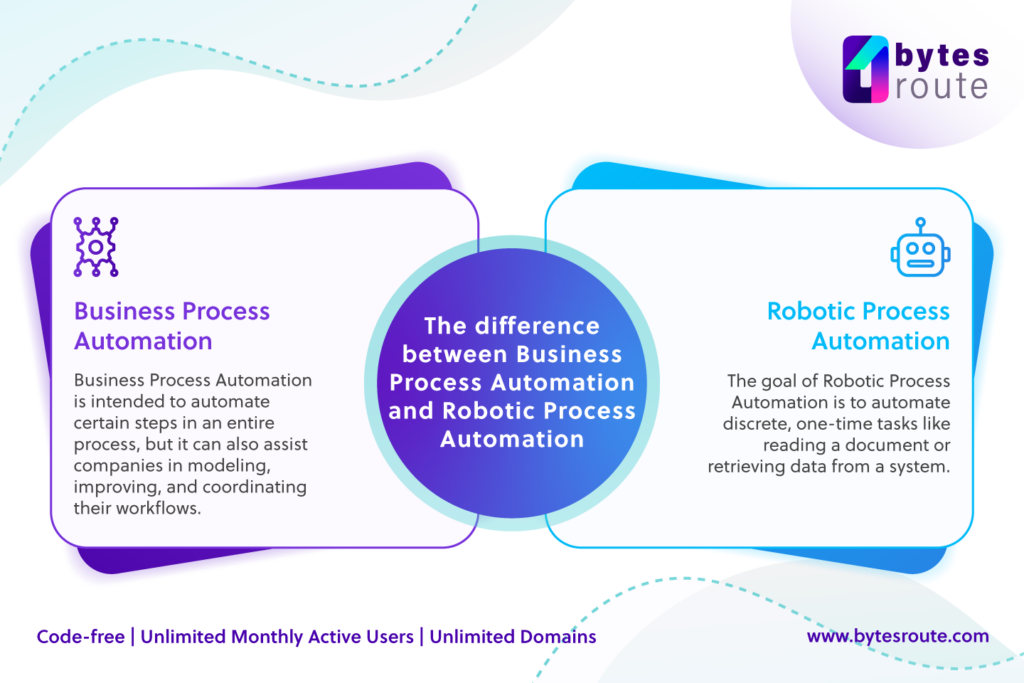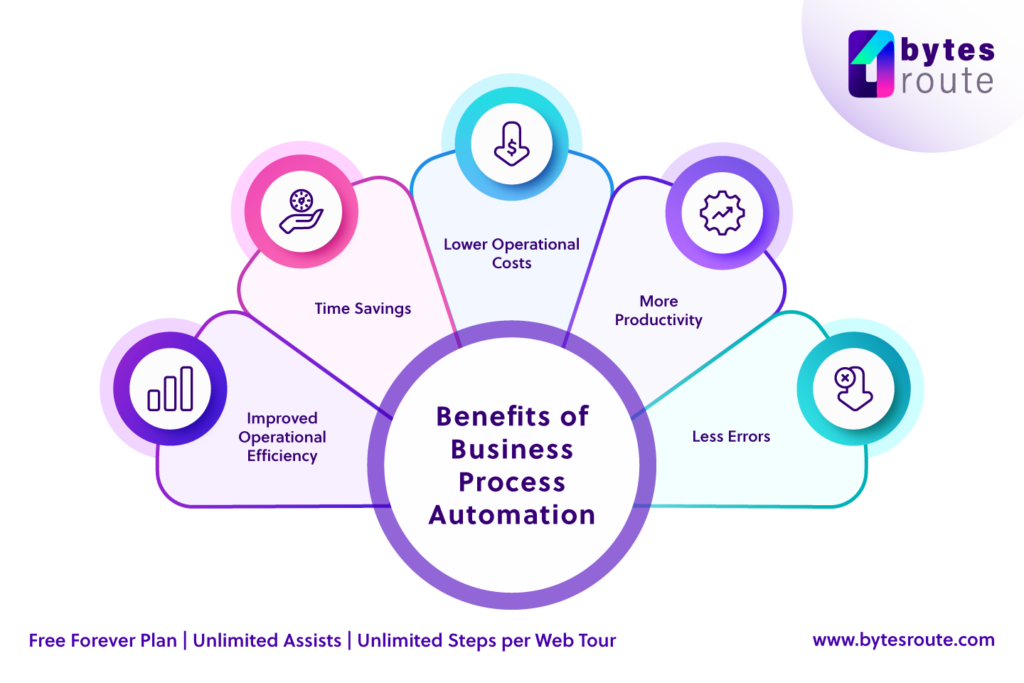What is business process automation?
Utilizing software solutions to automate recurring company processes is known as business process automation (BPA). Business process automation reduces the need for employees to manually complete labor-intensive, error-prone operations, improving process accuracy, efficiency, visibility, and compliance.
Business process automation is typically helpful to:
- Manage operations
- Management procedures
- Compliance
- Customer Services
- Automating repetitive tasks
Some examples of business process automation include automating actions such as:
- Purchasing products
- Authorizing contracts
- Onboarding new employees
What is the difference between Business Process Automation (BPA) and Robotic Process Automation (RPA)?

The goal of Robotic Process Automation (RPA) is to automate discrete, one-time tasks like reading a document or retrieving data from a system.
Business Process Automation (BPA) is intended to automate certain steps in an entire process, but it can also assist companies in modeling, improving, and coordinating their workflows.
What is business process automation software?
BPA solutions, as opposed to other forms of automation, are frequently complicated, linked to numerous business information technology (IT) systems, and created in particular to meet the requirements of a company.
Technology is used by process automation software to automate difficult commercial procedures. Typically, it serves three main purposes:
1. Automation of procedures
2. Consolidating data
3. Reducing the need for human intervention.
Having the right tools and using the right technology can help your business in many ways, from sales to marketing. Some of the best business process automation tools and how they can be used are:
Asana allows you to stay on task, keep projects organized, and meet deadlines with the aid of Asana’s web and mobile tools. Tracking individual tasks, organizing sprints, interacting with other tools, and successfully starting a project are all possible with this tool. As your team completes tasks, use Asana boards to track your progress on projects.
ProcessMaker is an open-source business process management (BPM) and workflow management application that allows analysts to model approval-based workflows. The service helps businesses create, automate, and implement business processes of various sizes.
ActiveBatch is helpful for users to run their workflows across a range of different platforms, applications, and technologies and achieve end-to-end automation. It automates the scheduling of repeated tasks to execute them faster.
Kissflow uses cloud-based business process automation to accurately, efficiently, and quickly automate repetitive rule-based procedures. This simple business process management automation software removes manual activities and improves process visibility and tracking.
Basecamp is a platform for managing team projects and tasks in collaboration. It is primarily distinguished by the simplification of work processes and success in preserving open communication between users.
Laserfiche integrates business process management (BPM), security and auditing, infinite servers, and a thin-client interface with content management capabilities. Features for records administration, open Web portals, and production-level document processing are additions.
What are the benefits of business process automation?
The benefits of automated systems could be a strong reason to give better customer service.

Business process automation has benefits like:
- Improved Operational Efficiency
- Time Savings
- Lower Operational Costs
- More Productivity
- Fewer Errors